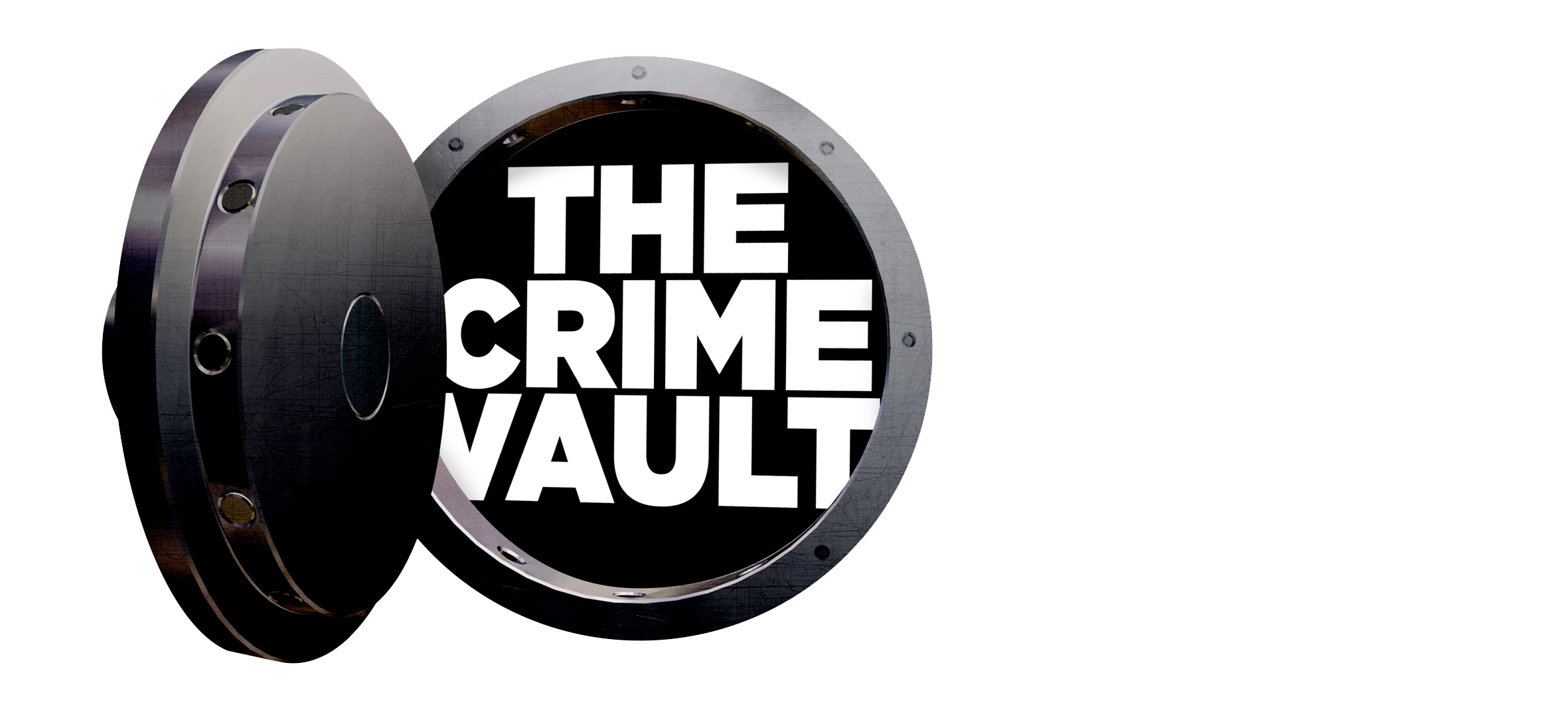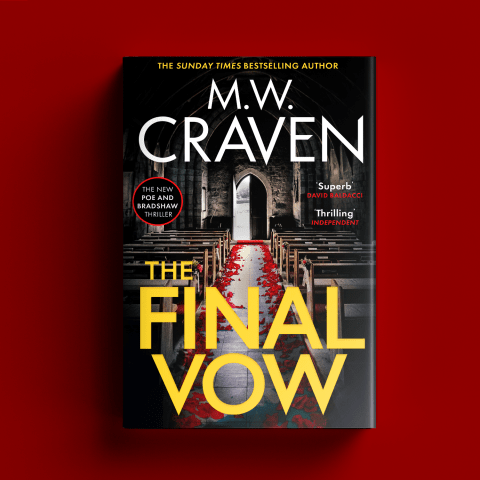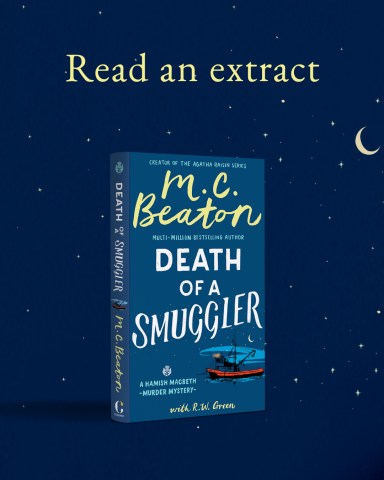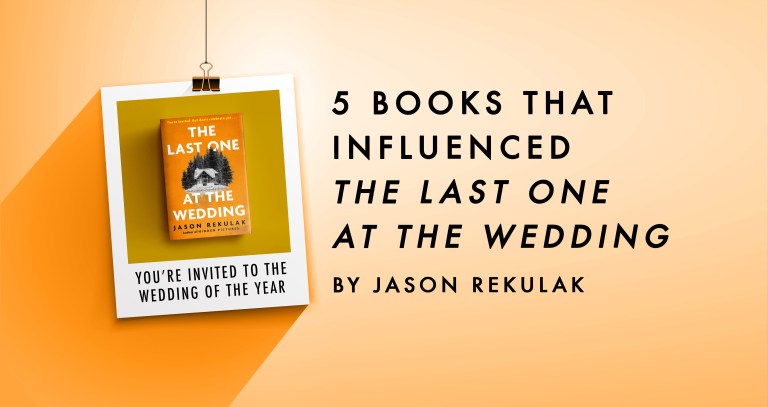The Crime Vault Exclusive Extract of The Quiet Tenant by Clemence Michallon
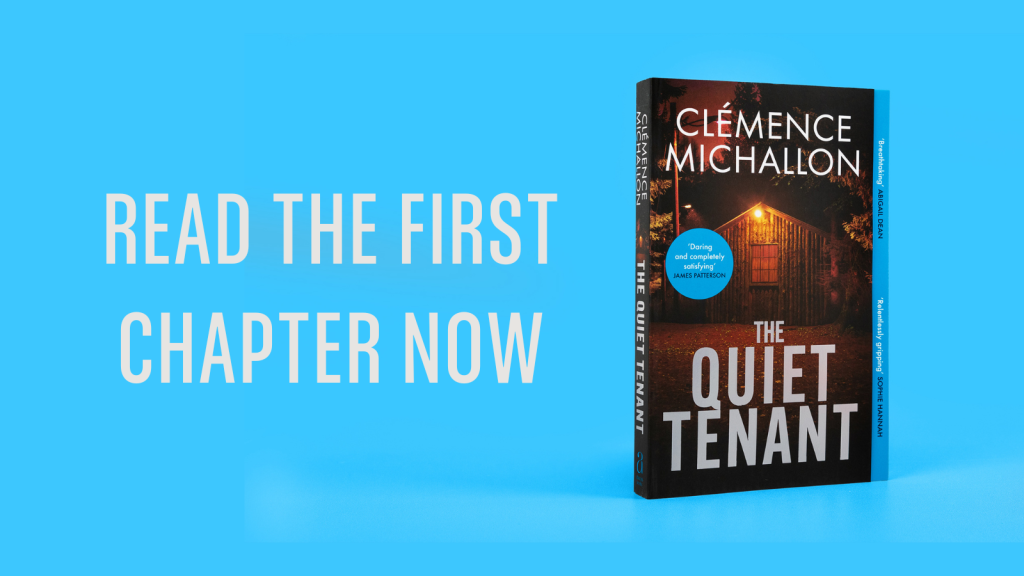
‘From the first page, you can say farewell to sleep’ ABIGAIL DEAN, bestselling author of Girl A
He took you and you have been his for five years. But you have been careful. Waiting for him to mess up. It has to be now.
CHAPTER 1
The Woman in the Shed
You like to think every woman has one, and he just happens to be yours.
It’s easier this way. If no one’s free. There is no room in your world for the ones still outside. No love for the wind in their hair, no patience for the sun on their skin.
He comes at night. Unlocks the door. Drags his boots through a trail of dead leaves. Shuts the door behind him, slides the deadbolt into place.
This man: young, strong, groomed. You think back to the day you met, to that brief moment before he revealed his true nature, and here’s what you see: A man who knows his neighbors. Who always takes out the recycling on time. Who stood in the delivery room the day his child was born, a steady presence against the evils of the world. Mothers see him in line at the grocery store and shove their babies into his arms: Can you hold her for a minute, I forgot the formula, be right back.
And now he’s here. Now he’s yours. There is an order to what you do.
He glances at you, a look that serves as an inventory. You are here.
All two arms, two legs, one torso, and one head of you.
Then comes the sigh. A softening in the muscles of his back as he settles into your shared moment. He bends to adjust the electric heater or the fan, depending on the season.
You put out your hand and receive a Tupperware box. Steam rises from the lasagna, the shepherd’s pie, the tuna casserole, whatever else it might be. The food, piping hot, leaves blisters on the roof of your mouth.
He hands you water. Never in a glass. Always in a canteen. Nothing that can be broken and sharpened. The cold liquid sends electric shocks through your teeth. But you drink, because the time to drink is now. A metallic taste lingers in your mouth afterward.
He gives you the bucket, and you do what you have to do. You stopped feeling ashamed a long time ago.
He takes your waste and leaves you for a minute or so. You hear him right outside, the padding of his boots against the ground, the spray of the hose. When he comes back, the bucket is clean, full of soapy water.
He watches as you clean yourself. In the hierarchy of your body, you are the tenant and he is the landlord. He hands you your tools: a bar of soap, a plastic comb, a toothbrush, a small tube of toothpaste. Once a month, the anti-lice shampoo. Your body: always brewing trouble, and him, keeping it at bay. Every three weeks, he pulls the nail clippers out of his back pocket. He waits while you snip yourself back to presentableness, then takes them back.Always, he takes them back. You have done this for years.
You put your clothes back on. It seems pointless to you, given what follows, but this is what he’s decided. It doesn’t work, you think, if you do it yourself. He has to be the one to pull down the zippers, undo the buttons, peel off the layers.
The geography of his flesh: things you didn’t want to learn, but learned anyway. A mole on his shoulder. The trail of hair down his abdomen. His hands: the grip of his fingers. The hot pressure of his palm on your neck.
Through it all, he never looks at you. This isn’t about you. This is about all the women and all the girls. This is about him and all the things boiling inside his head.
When it’s over, he never lingers. He’s a man in the world, with responsibilities calling out to him. A family, a household to run. Homework to check. Movies to watch. A wife to keep happy and a daughter to cradle. There are items on his to-do list beyond you and your little existence, all demanding to be crossed out.
Except tonight.
Tonight, everything changes.
Tonight is the night you see this man—this very careful man, known to take only calculated steps—violate his own rules.
He pushes himself up, palms flat on the wooden floor. His fingers are miraculously splinter-free. He secures the belt buckle underneath his belly button, pushes the metal against the tight skin of his midsection.
“Listen,” he says.
Something sharpens, the most essential part of you rising to attention.
“You’ve been here long enough.”
You search his face. Nothing. He’s a man of few words, of muted facial expressions.
“What do you mean?” you ask.
He shrugs his fleece back on, zips it up to his chin. “I have to move,” he says.
Again, you must ask: “What?”
A vein pulses at the base of his forehead. You have annoyed him. “To a new house.”
“Why?”
He frowns. Opens his mouth as if to say something, then thinks better of it.
Not tonight.
You make sure his gaze catches yours on his way out. You want him to drink in your confusion, all the questions left unaddressed. You want him to feel the satisfaction of leaving you hanging.
Rule number one of staying alive in the shed: He always wins. For five years, you have made sure of it.
CHAPTER 2
Emily
I have no idea if Aidan Thomas knows my name. I wouldn’t hold a grudge if he didn’t. He has more important things to remember than the name of the girl who pours his Cherry Coke twice a week.
Aidan Thomas doesn’t drink. Not liquor. A beautiful man who doesn’t drink could be a problem for a bartender, but my love language isn’t booze; it’s people sitting at my bar and putting themselves in my care for an hour or two.
This isn’t a language Aidan Thomas speaks fluently. He’s a deer on the side of the road, keeping still until you drive by, ready to bolt if you show too much interest. So I let him come to me. Tuesdays and Thursdays. In a sea of regulars, he’s the only one I want to see.
Today is a Tuesday.
At seven o’clock, I start glancing at the door. Keep one eye out for him and the other on the kitchen—my lead waitress, my sommelier, my absolute prick of a head chef. My hands move on autopilot. One sidecar, one Sprite, one Jack and Coke. The door opens. It’s not him. It’s the lady from the four-top by the door who had to go move her car to a new spot. One bitters and soda. A new straw for the kid at the back. A report from my lead waitress: the four-top didn’t like the pasta. It was cold or it wasn’t spicy enough. Their grievances are unclear, but they are here, and Cora isn’t losing her tips because the kitchen can’t work a food warmer. Placate Cora. Tell her to tell the cooks to redo the pasta, with a free side of something as an apology. Or have Sophie, our baker, send out a dessert if the four-top look like they have a sweet tooth. Whatever it takes to shut them up.
The restaurant is a black hole of needs, a monster that can never be sated. My father never asked me; he just assumed I would step in. And then he went ahead and died, because that’s what chefs do—exist in a blur of heat and chaos only to leave you to pick up the pieces.
I pinch my temples between two fingers, try to fend off the dread.
Maybe it’s the weather—it’s the first week of October, still early fall, but the days are getting shorter, the air colder. Maybe it’s something else. But tonight, every failure feels especially mine.
The door opens. It’s him.
Something lightens inside of me. A joy bubbles up, the kind that leaves me feeling small and a little bit dirty and possibly quite dumb, but it’s the sweetest sensation the restaurant has to offer, and I’ll take it. Twice a week, I’ll take it.
Aidan Thomas sits at my bar in silence. He and I don’t talk except for the usual pleasantries. This is a dance, and we know our steps by heart. Glass, ice cubes, soda gun, paper coaster. Amandine written in vintage cursive across the cardboard. One Cherry Coke. One satisfied man.
“Thank you.”
I give him a quick smile and keep my hands busy. In between tasks—rinsing a shaker, organizing jars of olives and lemon slices—I sneak glances at him. Like a poem I know by heart but never tire of: blue eyes, dark-blond hair, neat beard. Lines under his eyes, because he has lived. Because he has loved and lost. And then, his hands: one resting on the counter, the other wrapped around his glass. Steady. Strong. Hands that tell a story.
“Emily.”
Cora’s leaning against the bar. “What now?”
“Nick says we need to eighty-six the sirloin.”
I hold in a sigh. Nick’s tantrums are not Cora’s fault. “And why would we need to do that?”
“He says the cut isn’t right and the cooking times are off.” I tear my eyes away from Aidan to face Cora.
“I’m not saying he’s right,” she says. “He just . . . asked me to tell you.”
At any other time, I would leave the bar and deal with Nick myself. But he’s not going to take this moment from me.
“Tell him message received.”
Cora waits for the rest. She knows as well as I do that “message received” won’t get Nick off anyone’s back.
“Tell him that if we get any complaints about the sirloin, I’ll handle them personally. I promise. I’ll shoulder all the blame. Sirloingate will be my legacy. Tell him the food has been raved about tonight. And tell him he should worry less about the sirloin and more about his pickup station, if his guys are sending out cold food.”
Cora raises her hands, like All right, all right. She heads back toward the kitchen.
This time, I allow myself a sigh. I’m about to turn my attention to a couple of martini glasses in need of a shine when I feel a gaze on me.
Aidan.
He’s looking up from the counter, giving me a half smile. “Sirloingate, eh?”
Shit. He heard.
I force myself to chuckle. “Sorry about that.”
He shakes his head, takes a sip from his Cherry Coke. “No need to apologize,” he says.
I smile back and focus on my martini glasses, for real this time. In the corner of my eye, Aidan finishes his Coke. Our choreography resumes: A tilt of the head to ask for his check. A hand raised briefly as a goodbye.
And just like that, the best part of my day is over.
I collect Aidan’s receipt—two-dollar tip, as always—and his empty cup. It’s not until I wipe the bar that I notice it: a hitch, a change in our well-rehearsed pas de deux.
His coaster. The paper one I slipped under his drink. Now would be the time for me to throw it in the recycling bin, but I can’t find it. Maybe it fell? I step on the other side of the counter, look at the foot of the barstool he was sitting on just a few minutes ago. Nothing.
It’s the weirdest thing, but undeniable. The coaster is gone.
CHAPTER 3
The Woman in the Shed
He brought you here.
His home revealed itself to you in flashes, quick glances when he wasn’t looking. Over the years, you have gone over those images, clung to every detail: the house at the center of a patch of land. Green grass, willow trees.Every plant trimmed, every leaf tended to. Smaller buildings scattered around the property like tea cakes on a platter. A detached garage, a barn, a bike rack. Power lines snaking through branches. This man, you learned, lived somewhere soft and beautiful. A place for children to run, for flowers to bloom.
He walked fast, down a dirt path and up a hill. The house faded into the distance, replaced by a litany of trees. He stopped. There was nothing to grab onto, no one to call out to. You stood in front of a shed. Four gray walls, aslanted roof. Windowless. He held the metallic padlock, separated a key from the rest of the bunch.
Inside, he taught you the new rules of the world.
“Your name,” he said. He was kneeling, yet still towering above you, hands on each side of your face so that your vision began and ended with his fingers. “Your name is Rachel.”
Your name was not Rachel. He knew your real one. He had seen it on your driver’s license after taking your wallet.
But he told you your name was Rachel, and it was vital for you to accept this fact. The way he said it, the growl of the r and the definitiveness of the l. Rachel was a blank slate. Rachel didn’t have a past or a life to get back to. Rachel could survive in the shed.
“Your name is Rachel,” he said, “and no one knows who you are.” You nodded. Not eagerly enough. His hands left your face and grabbed onto your sweater. He pushed you into the wall, arm lodged against your neck, wristbones embedded into your trachea. There
was no air, no oxygen at all.
“I said,” he said, and the world started slipping from you, but not hearing him wasn’t an option, “no one knows who you are. No one is looking for you. Do you fucking understand?”
He let go. Before you coughed, before you wheezed, before you did anything else, you nodded. Like you meant it. You nodded for dear life.
You became Rachel.
You have been Rachel for years.
She has kept you alive. You have kept you alive.
Boots, dead leaves, deadbolt. Sigh. Heater. Everything as usual, except him. Tonight, he rushes through his ritual as though he’s left water boiling on the stove. You’re still chewing your last bite of chicken pot pie when he takes the Tupperware from you.
“Come on,” he says. “I don’t have all night.”
It’s not eagerness, this haste of his. More like you’re a song and he’s fast-forwarding through the boring parts.
He keeps his clothes on. The zipper of his fleece digs a crevice into your abdomen. A strand of your hair lodges itself in the clasp of his watch. He pulls his wrist away, wrestles himself free of you. You hear a tear. Your scalp burns. Everything palpable, everything real, even as he hovers over you like a ghost.
You need him here. With you. You need him relaxed and comfortable.
You need him to talk.
You wait until after. Your clothes back on for good.
As he prepares to leave, you run a hand through your hair. A gesture you used to deploy on dates, the elbow of your biker jacket on a restaurant table, your white T-shirt livened up by a cluster of silver pendants.
This happens. You remember bits of yourself, and sometimes they help you.
“You know,” you tell him, “I worry about you.” He scoffs.
“It’s true. I mean—I just wonder. That’s all.” He sniffs, stuffs his hands into his pockets.
“Maybe I could help,” you try. “Find a way for you to stay.”
He snorts but makes no move toward the door. You have to hold on to that. You have to believe this is the beginning of a victory.
He talks to you, sometimes. Not often, and always reluctantly, but he does. Some nights, it’s bragging. Othernights, it’s a confession. Perhaps this is why he has bothered keeping you alive at all: there are things in his life he needs to share, and you’re the only one who can hear them.
“If you tell me what happened, maybe I could figure it out,” you say.
He bends his knees, brings his face in front of yours. His breath, minty fresh. His palm, warm and rugged against your cheekbone. The tip of his thumb digs into your eye socket.
“You think if I tell you, you’ll figure it out?”
His gaze trails from your face to your feet. Repelled. Scornful. But always—this is important—a little bit curious. About the things he can do to you, the things he can get away with.
“What could you possibly know?” He traces the outline of your jaw, his nail grazing against your chin. “Doyou even know who you are?”
You do. Like a prayer, like a mantra. You are Rachel. He found you. All you know is what he has taught you. All you have is what he has given you. A chain around your ankle, nailed to the wall. A sleeping bag. On an upturned crate, the items he has brought you over the years: three paperbacks, a wallet (empty), a stress ball (really). Random and mismatched. Taken, you inferred, by this magpie of a man from other women.
“I found you,” he says. “You were lost. I gave you a roof. I keep you alive.” He points to the empty Tupperware. “Know what you’d be, without me? Nothing. You’d be dead.”
He gets up again. Cracks his knuckles, each finger a distinct pop.
You are not much. You know that. But in the shed, in this part of his life, you’re all he’s got.
“She’s dead,” he says. He tries it on for size and says again: “She’s dead.”
You have no idea who he’s talking about until he adds: “Her parents are selling the house.”
And then you get it.
His wife.
You try to think all the thoughts at once. You want to say what people say in polite society: I’m so sorry to hear. You want to ask, When? How? You wonder, Did he do it? Did he finally snap?
“So we have to move.”
He paces, as much as one can pace in the shed. Rattled, which is unlike him. But you have no time for his emotions. No time to waste figuring out whether he did it. Who cares if he did? He kills. You know that.
What you need to do is think. Search the atrophied folds of your brain, the ones that used to solve the problems of daily life. The part of you that helped your friends, your family. But the only thing your brain screams is that if he moves—if he leaves this house, this property—you die. Unless you can convince him to bring you along.
“I’m sorry,” you tell him.
You are so sorry, all the time. You are sorry his wife is dead. You are sorry, truly so, about the injustices of the world, the way they’ve befallen him. You are sorry he’s stuck with you, such a needy woman, always hungry and thirsty and cold, and so nosy at that.
Rule number two of staying alive in the shed: He’s always right, and you’re always sorry.
